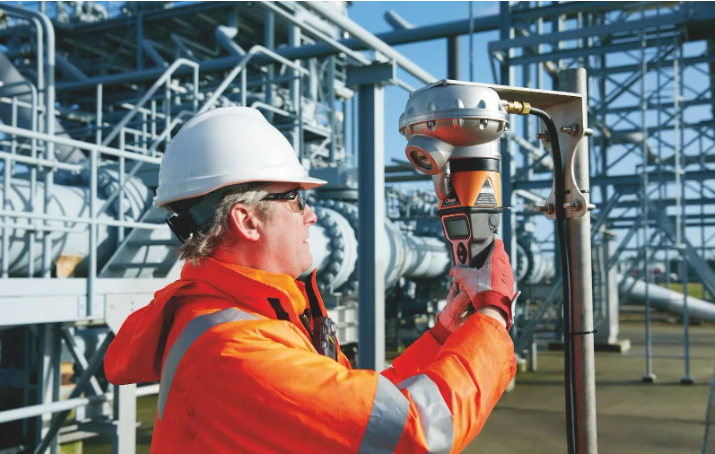Hydrogen is a highly flammable gas that can pose a significant risk of explosion and fire if it leaks from a pipeline, storage tank, or other containment device. This is why it is crucial to detect hydrogen leaks as early as possible to prevent accidents and ensure the safety of personnel and the surrounding environment. Portable hydrogen leak detectors are essential tools in this regard, as they can quickly and accurately detect even the smallest leaks of hydrogen gas before they lead to hazardous situations. In this article, we will explore the role of portable hydrogen leak detectors in preventing explosions and fires, their types, and how they work.
Hydrogen, being a highly flammable gas, always carries the risk of explosion and fire if it leaks from any containment device. Thus, it becomes imperative to detect any hydrogen leaks as early as possible to ensure the safety of people and the environment. Portable hydrogen leak detectors play a crucial role in detecting even the tiniest leaks of hydrogen gas, thereby preventing any hazardous situations. In this article, we will delve into the types of portable hydrogen leak detectors, their working mechanism, and their importance in preventing explosions and fires.
The Importance of Hydrogen Leak Detection
Hydrogen is a colorless and odorless gas that is used in various industrial applications, such as fuel cells, refineries, chemical plants, and welding. Although it is a clean energy source, it has some inherent risks associated with its storage, handling, and transportation. Hydrogen can ignite at concentrations as low as 4% in air and can explode if the concentration reaches 18%. Therefore, it is essential to detect any hydrogen leaks before they reach these levels.
Types of Portable Hydrogen Leak Detectors
Several types of portable hydrogen leak detectors are available in the market, and each has its advantages and limitations. The most common types are:
- Catalytic bead sensors
- Infrared sensors
- Semiconductor sensors
Catalytic bead sensors are highly sensitive and can detect low levels of hydrogen, but they can be affected by other gases in the environment.
Infrared sensors are selective and can measure specific types of hydrogen, but they are less sensitive than catalytic bead sensors.
Semiconductor sensors are inexpensive and can detect hydrogen quickly, but they are less accurate than the other two types. It is important to choose the right type of hydrogen leak detector for the specific application and environment to ensure accurate and reliable results.
How Portable Hydrogen Leak Detectors Work
Portable hydrogen leak detectors work by sampling the air around the potential leak source and analyzing it for the presence of hydrogen gas. They are designed to be easy to use and portable, allowing personnel to move around the site and locate leaks quickly and accurately.
These detectors are equipped with sensors that can detect even the smallest amounts of hydrogen gas, and they can provide both visual and audible alarms to alert the operator of a potential leak. Portable hydrogen leak detectors are commonly used in industries such as petroleum, chemical, and power generation, where hydrogen is used as a fuel or coolant.
They are an essential tool for ensuring the safety of personnel and equipment, as well as minimizing the risk of explosions or other hazardous incidents. With their ease of use and portability, these detectors have become an indispensable part of many industrial safety programs.
Conclusion
Portable hydrogen leak detectors play a vital role in preventing explosions and fires by detecting hydrogen leaks early and accurately. They are essential tools for ensuring the safety of personnel, assets, and the environment in industrial applications where hydrogen is used.
Catalytic bead, infrared, and electrochemical sensors are the most common types of hydrogen leak detectors, each with its advantages and limitations. Their sensitivity, selectivity, and lifespan vary, and the choice of the detector depends on the specific application and the user’s requirements. With the increasing use of hydrogen as a clean energy source, the demand for hydrogen leak detectors is expected to grow, and the technology will continue to evolve to meet the changing needs of the industry.



